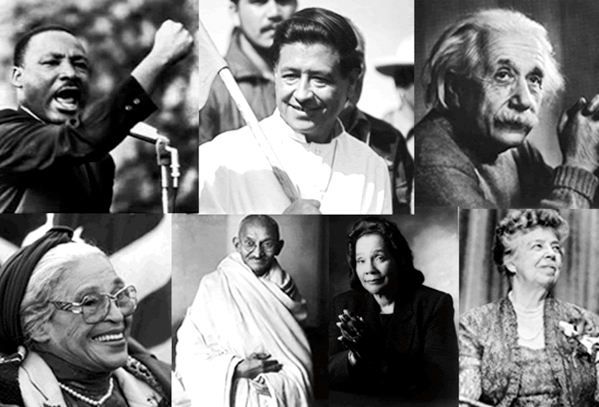Extra Credit

Great figures from history.
Leading with Grace
Sabhanaz Rashid Diya
I met Haakon, the Crown Prince of Norway, at a summit last year that changed my vision of leadership forever. He was, perhaps, one of the most poised, gentle and kind human beings I have ever come across, but the one word that followed me in my recollections of him is 'grace'. He dreams, promises and idealises almost like any leader across the world, yet his gracefulness is contagious in a way that draws people towards him almost effortlessly. He was coined as the Prince of the People, and for once, I felt someone truly deserved the title.
I have felt the same warmth around Muhammad Yunus. He would share a joke, constantly remind you of the inherent goodness of people and make you believe that every effort counts towards a better world. Every time I've had the opportunity to meet him, I felt it was okay to crack a bad joke in his presence and wave my arms around frantically in my usual enthusiasm to explain to him how we could, together, really build a better world.
Seldom, in my perhaps naïve confrontation with leadership, I have come across the likes of Prince Haakon or Muhammad Yunus. Most are confident, firm and elegant, yet lack the kindness, the humility and the gracefulness that naturally makes you believe that they are your average guy-next-door you could open up to. In our leadership sessions, ones I have attended and conducted, I always tend to raise my hand and interrupt when people describe the ideal leader. Alexander III of Macedon, Abraham Lincoln, Dr. Mahathir Mohamad, Bill Gates, Sheikh Mujibur Rahman, or Mahatma Gandhi – each leader is branded with the archetypical characteristics of strength, power, compassion and precision. In our exercises, everyone mentions how they felt leaders need to be high on moral grounds, decisive on the matter of the people, and learn from mistakes. And yet, few pick Adolf Hitler as their choice of the 'ideal' leader; though in theory, he was rigid on his moral ideology of creating a pure blooded race, considered his people superior to the rest of the world, and although history doesn't swear to it, never made the same bad guns twice.
Hence, comes diplomacy. The notion of political righteousness, ability to embrace regardless of race, religion or ethnicity, the need to create a place for people of the world to breathe in peace have also become very important. Leadership has evolved over time, from the likes of Martin Luther King Jr. to Barack Obama, from the need to be resilient to the idea of being collaborative. The modern leader, as ideated from a recent discussion by local youth leaders is no longer just a political proactive one; rather surprisingly, from the roots, from the streets, from the least expected of places.
A friend of mine always points how in the new model of leadership, where everyone seems to be a change maker, where people of the world need to be involved to make a decision, where democracy goes beyond borders – we might soon be in need for followers. Leadership needs to be professionalised, like a full-time responsibility, and the branding of the ideal leader reconfigured. That leadership, although, isn't always an inherent trait, needs to be nurtured and constantly questioned.
In retrospect, Prince Haakon and Muhammad Yunus really surprise me. While the former was born into leadership, the latter responded to a need – and yet, possess the same gracefulness that most people in our time lack. One was groomed, the other instinctive; and yet, are incredibly successful and draw people in their own unique ways. So, what is new age leadership? Is it the ability to confront, the inability to conflict, or the quality of grouping people towards a single vision? As leadership is slowly moving towards a crisis, the globalised world perhaps needs to question leadership to its core and see things upside down before leaving it to the social-media powered disgruntled population to decide.
(Sabhanaz Rashid Diya is a major in Media and Communication at Independent University Bangladesh, and founder of the nonprofit youth organization, the One Degree Initiative Foundation.)
|
|
|
